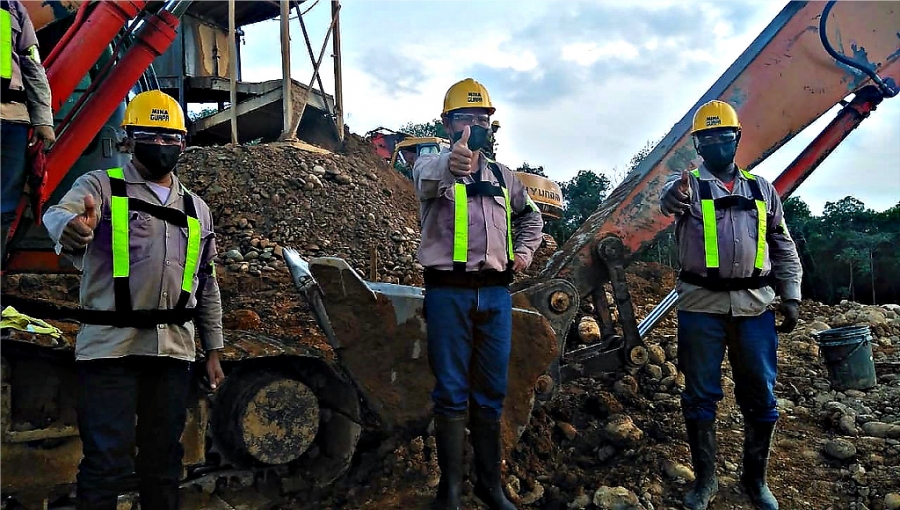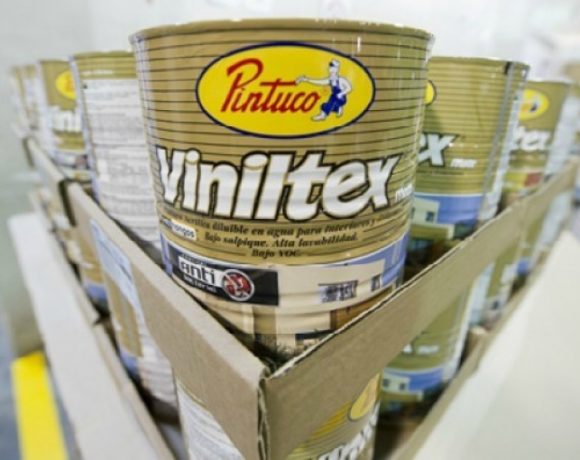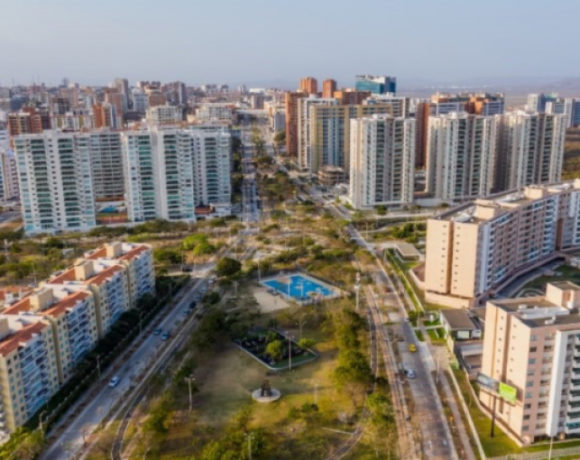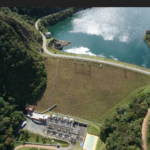Gran Colombia Gold 1Q 2020 Profits Jump Year-on-Year; Antioquia Mining Rebounds

Toronto-based Gran Colombia Gold — Antioquia’s biggest gold miner — announced May 15 that its first quarter (1Q) 2020 adjusted net income soared to US$21.2 million, up from US$7.9 million in 1Q 2019.
The company – whose principal mining operations are in Segovia, Antioquia – credited the profits improvement to “revenue growth resulting from higher gold prices in 2020 and the increased volume of gold sales” in the latest quarter.
Adjusted earnings before interest, taxes, depreciation and amortization (EBITDA) likewise rose to US$50.4 million, from US$35 million in 1Q 2019.
Commenting on the results, GCC executive chairman Serafino Iacono said:“Our first quarter results continued to show strength — and that was when gold was more than $100 an ounce lower than where we are now [in mid-May 2020].
“The balance sheet also got stronger as we built up our consolidated cash position to about US$100 million and by the end of April, we had reduced our gold notes [debt] by 40% since the beginning of the year.”
GCC’s gold production in the first quarter of 2020 dipped to 56,247 ounces (from 60,601 in 1Q 2019) because of restricted movements of workers here during the Covid-19 crisis.
“The company’s mines have continued to operate during the national quarantine implemented in Colombia in late March,” according to GCC.
“However, restrictions on movement of people between communities has limited the availability of workers at the mines. Although April’s gold production totaled 12,602 ounces — about 65% of the average monthly volume over the last 12 months — the situation has improved and the Segovia [Antioquia] operations have been operating at about 95% of normal since mid-April,” the company added.
In other highlights, GCC announced that it has completed spin-out of its Marmato mining assets in Colombia through a reverse takeover transaction. As a result, GCC has a 74.4% interest in the resulting issuer, named “Caldas Gold Corp.”
Meanwhile, GCC recently signed a letter of intent with Renergetica Colombia to acquire am 11.2-megawatt solar-power project in Tolima, Colombia.
On yet another front, GCC announced May 25 the cancelllation of a proposed merger with Guyana Goldfields and Gold X, mainly to expand gold-mining operations in Guyana, South America.
USAID ‘Legal Gold’ Project Sees Antioquia Rebound
On a related front, the Medellin-based “Legal Gold” project of the U.S. Agency for International Development (USAID) announced May 15 that gold miners in Antioquia are gradually returning to work following new Health Ministry protocols to avoid Coronavirus infections.
“The mandatory preventive isolation measure decreed by the national government on March 25, 2020, and which lasts until May 25, decreased the operations of the mining industry, despite the fact that this sector was included within the 34 exceptions of the Decree 457,” USAID noted.
“Large-scale mining companies tightened security measures and significantly reduced their operations. however, they gradually resumed them with biosecurity measures.
“A different scenario faced small-scale mining, especially the mining production units (UPM) of Bajo Cauca, North and Northeast Antioquia, and those of the department of Chocó, which had suspended activities due to the shortage of the supply chain, the fall of the local gold price, lack of buyers, mobility restrictions and fear of contagion by Coronavirus.”
These smaller-scale mining operations “began to resume activities gradually, motivated by the lack of income, the conditions offered by the territory and the isolation in which they find themselves, which [isolation] paradoxically becomes a point in favor of a possible active presence of the virus,” according to the agency.
“The commercialization of gold began to revive, despite the difficulties of moving within the municipalities — especially in the UPMs that have contracts with international trading companies.
“In the case of the UPM of Antioquia (North, Northeast and Bajo Cauca) the picture is similar. Gold sales are made through the international trading company, located in Medellín, which is receiving the metal in this city but with a brief decrease in the price per gram — between COP$10,000 and COP$12,000 [US$2.56 to US$3.07] –due to the unavailability of commercial flights, which has generated an extra cost for its mobilization.
“This situation has motivated some miners to sell their product to local gold purchases, where they are paid by the gram at a lower price,” USAID added.
















